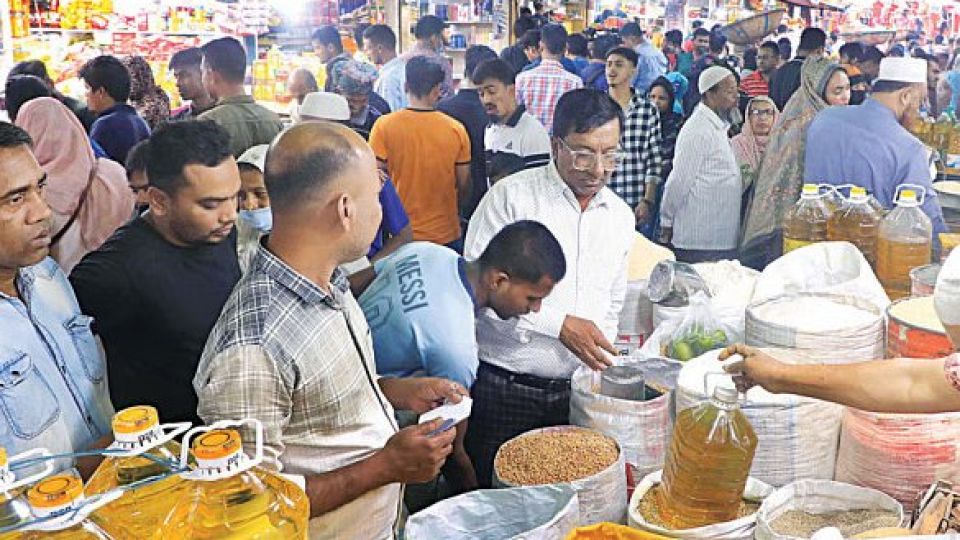March 12, 2024
DHAKA – Despite the government’s repeated assurances of stability in kitchen markets during Ramadan, the prices of some commodities, mainly consumed during iftar, have seen a substantial surge, hurting people from limited income groups.
The prices of essentials such as eggplants, green chillies, coriander leaves, cucumber, tomatoes, mint leaves, and grass peas (a kind of pulse) have increased by Tk 10-30 over the last two days.
Meanwhile, the prices of lemons per dozen have doubled in two days, while those of dates, sugar, pulses, onions, ginger, garlic, potatoes, chickpeas and gram flour have remained high for the past one month.
Only the price of soybean oil has come down. It was sold for Tk 845 per five litres before March 1 and has been selling for Tk 840 since then.
Visiting the capital’s Karwan Bazar, Kachukhet, Ibrahimpur, and Shewrapara kitchen markets, these correspondents saw huge crowds of customers, especially at shops selling dates.
Abul Kalam, a lemon wholesaler in Karwan Bazar, explained that the prices of lemons increase every year during Ramadan.
“We used to sell 100 lemons at Tk 600, but now we are selling 100 lemons at Tk 1,400. Even at these higher prices, we cannot meet the demand, leading to a shortage of lemons in the market.”
A dozen mid-sized lemons are now being sold at Tk 120. It was Tk 60 two days ago.
Meanwhile, eggplants now cost Tk 100-120 per kg, up from Tk 70-80 three days earlier.
Cucumbers are being sold at Tk 80-120 per kg, up from Tk 70-80, while green chilies and coriander leaves now cost Tk 100-120 per kg, which was Tk 80-100. Mint leaves are now Tk 100-120, up from Tk 80, tomatoes Tk 50-60 per kg, up from Tk 40-50, and grass peas at Tk 130 per kg, which was Tk 120.
Furthermore, prices of some other Ramadan essentials, including Tang and Rooh Afza, have also risen.
Prices of both local and imported fruits have increased by Tk 10-50 within the last week.
Expressing frustration, people from low- and fixed-income groups said that while the government has pledged to maintain the affordability of daily essentials, there has been no visible action and all items are now being sold at high prices.
Habibur Rahman, a resident of the Moghbazar area, came to Karwan Bazar to buy daily essentials for a week.
“I brought Tk 5,000 with me as I thought it would be enough to purchase a week’s worth of essentials. However, once I reached the kitchen market, I realised it isn’t enough. I had to spent half of it [Tk 2,500] just on two items – chicken and dates. I had to reduce the quantities of the essentials I had to buy to be able to afford all the items.”
Like him, many others purchasing daily essentials in different kitchen markets in the capital expressed disappointment.
SM Nazer Hossain, vice president of the Consumers Association of Bangladesh, said the businessmen treats Ramadan like their “profit-making month”.
“The government has pledged to keep the prices of daily essentials at a tolerable level, but we can’t see any implementation. It remains only on paper.”


